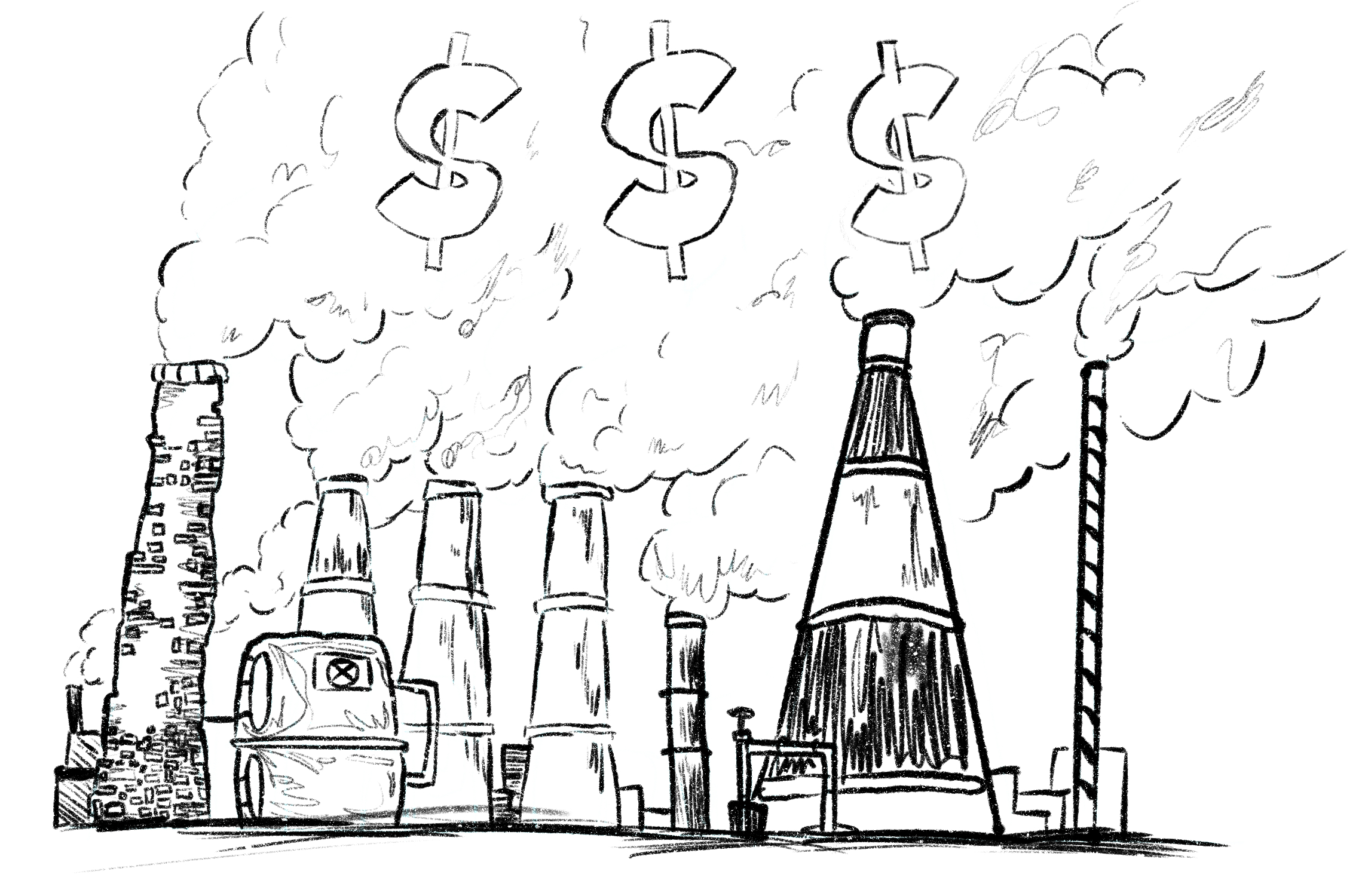Carbon fee and dividend: a promising climate solution
February 4, 2022
 This
piece represents the opinion of the author
.
This
piece represents the opinion of the author
.
As rain continues to fall in New England in January, and as global climate negotiations fail to meet necessary targets, the future of our climate may not look bright. But the good news is that we still have a chance to enact policies that will help the climate, the people and the economy. Effective climate legislation can rapidly reduce domestic carbon emissions, influence carbon emissions on a global scale, protect people financially and boost the economy.
The best policy option to accomplish objectives is a national carbon fee and dividend, according to the most-supported public statement by economists about any topic ever. A carbon fee and dividend policy imposes a fee on fossil fuel producers that starts low—at $15 per ton of carbon equivalent emissions—but grows steadily every year by an additional $10 per ton. All of the money collected from the fee is distributed to American households as a cash-back dividend on an equal, per capita basis each month. Finally, a border carbon adjustment is used to impose our carbon price on imports from other countries that do not have a matching carbon price in place, thereby protecting the competitiveness of US businesses and incentivizing global climate action. Carbon fee and dividend has been introduced in Congress as the Energy Innovation Act and is also being considered as part of the Build Back Better Reconciliation bill.
The Intergovernmental Panel on Climate Change calls for net zero carbon emissions globally by 2050 to limit global warming this century to 1.5 degrees Celsius. President Biden intends for the United States to do our part. Carbon fee and dividend legislation alone will reduce domestic carbon emissions 90 percent by 2050, putting us well on our way to net zero. With the implementation of a few supporting energy efficiency and carbon sequestration policies, the ambitious goal of net zero is in reach.
One country alone cannot stop climate change by eliminating their emissions, but domestic climate legislation can impact climate policymaking in other countries. The border carbon adjustment piece of carbon fee and dividend will encourage every country that trades with the United States to implement a matching carbon price in order to avoid paying a tariff to the United States during trade. Since carbon pricing is the most effective tool to drive down emissions, domestic carbon fee and dividend in conjunction with border carbon adjustments legislation is very promising as a global solution.
Carbon fee and dividend is widely popular because it helps families financially while simultaneously tackling climate change. With everyone receiving an equal dividend check each month, anyone with a below-average carbon footprint will come out ahead under this policy.
While 85 percent of all households will either break even or come out ahead, low-income and marginalized households that naturally have less carbon-intensive lifestyles will benefit disproportionately. The percentage of households that either break even or come out ahead increases to 99 percent among the poorest fifth of all households, and ranges between 88 and 93 percent for non-white households.
Finally, carbon fee and dividend will boost the United States’ economy. The extra money that the dividend generates allows poor families to spend on everyday necessities stimulates many industries, leading the policy to create a net 2.1 million jobs in 10 years. Pricing carbon domestically also allows United States businesses to remain competitive in the global market by ensuring that they will not have to pay tariffs when exporting to other countries using border carbon adjustments, such as the European Union.
Carbon fee and dividend is a win-win solution for the climate, the people and the economy. Our leaders are considering it in Congress this year, and your input can make a big difference. Please call your Congresspeople and ask them to enact carbon fee and dividend legislation!
Katharine Gage is a member of the Class of 2025.


Comments
Before submitting a comment, please review our comment policy. Some key points from the policy: